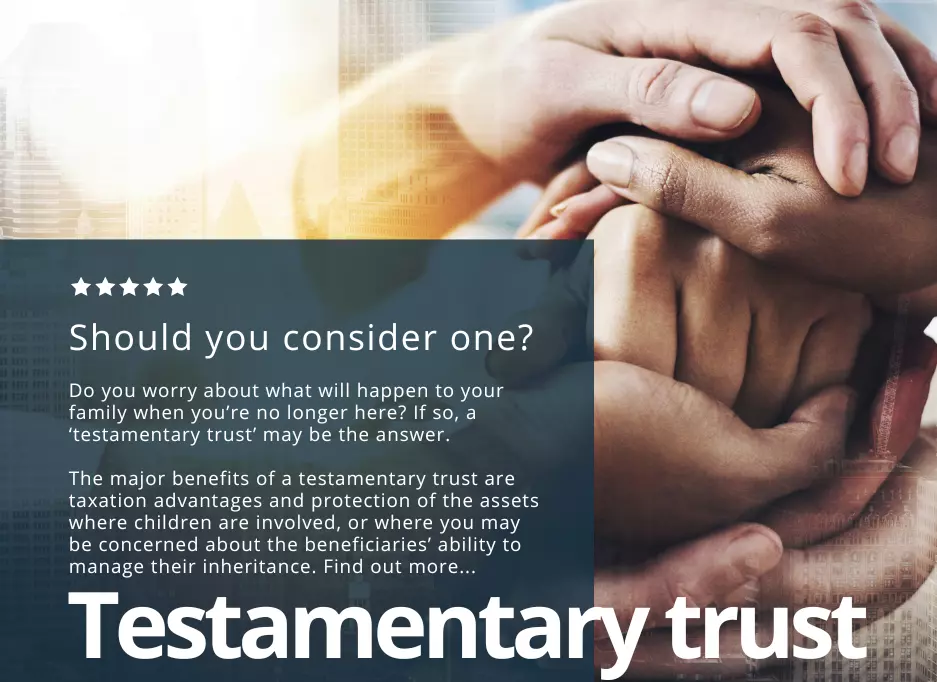Estate Planning for Business Owners
Table of Contents
ToggleFor business owners, estate planning goes beyond the transfer of personal wealth to family members. It includes strategies for business succession, ensuring the continuity of operations, and preserving the value of the enterprise for future generations or new leadership. A robust estate plan provides peace of mind, minimises legal disputes, and secures the financial future of both the family and the business.
This blog covers essential considerations for estate planning as a business owner, including succession planning, valuation, tax strategies, and tools to ensure a smooth transition of leadership and ownership.
Understand the Importance of Estate Planning for Business Owners
Estate planning for business owners is a strategy to manage the transfer of business assets and ownership. Without a clear plan, unexpected events—such as illness or death—can disrupt business operations, impact employee stability, and reduce asset value. Effective planning minimises these risks, helping to secure the legacy of the business and the financial future of heirs and stakeholders.
Key Benefits:
- Continuity of business operations and brand integrity.
- Reduced risk of conflicts among heirs and co-owners.
- Efficient transfer of assets, minimising tax and legal costs.
Develop a Business Succession Plan
A succession plan identifies who will take over the business when the owner retires, steps down, or passes away. This plan provides a roadmap for a smooth transition, whether ownership transfers to a family member, co-owner, key employee, or an outside buyer.
Key Components of a Succession Plan:
- Successor Identification: Decide who is best suited to take over the business, whether a family member, partner, or external party.
- Training and Development: Ensure successors are well-trained and understand the business to prepare them for leadership.
- Transition Timeline: Develop a clear timeline for transitioning roles and responsibilities to avoid disruptions.
- Contingency Planning: Create backup plans for unforeseen events, such as the designated successor being unable to take over.
Conduct a Business Valuation
A professional valuation provides an accurate estimate of your business’s worth, which is essential for estate planning, tax purposes, and equitable distribution of assets among heirs or co-owners. Knowing the business’s value also aids in setting fair buyout prices if shares are transferred or sold.
Why a Valuation Is Important:
- Fair Asset Distribution: Helps ensure family members and other beneficiaries receive a fair share.
- Tax Implications: Understanding value enables more accurate tax planning.
- Funding Life Insurance: If you use life insurance to cover buy-sell agreements, valuation helps determine adequate coverage levels.
Set Up Buy-Sell Agreements
A buy-sell agreement is a legally binding contract that outlines what will happen to an owner’s interest in the business if they pass away, retire, or wish to sell. This agreement is particularly important in multi-owner businesses to avoid conflicts and ensure a smooth transfer of ownership.
Types of Buy-Sell Agreements:
- Cross-Purchase Agreement: Co-owners agree to buy the shares of the departing or deceased owner.
- Entity Purchase Agreement: The business itself buys back the shares, redistributing ownership among remaining owners.
- Funding Mechanisms: Life insurance is commonly used to fund buy-sell agreements, ensuring liquidity for buyouts without disrupting business cash flow.
Consider Tax Implications and Strategies
Estate and capital gains taxes can significantly impact the wealth transferred to heirs or new owners. Business owners should employ tax-efficient strategies to minimise the tax burden associated with business succession.
Tax Strategies:
- Family Trusts: Place business assets in a family trust to manage and distribute assets with potential tax efficiencies.
- Gifting Shares Gradually: Gifting shares to heirs over time can reduce the capital gains tax impact compared to a large, single transfer.
- Capital Gains Tax Planning: Explore options to defer capital gains tax, including timing transfers or sales to align with lower tax years.
Use Trusts for Estate and Business Succession Planning
Trusts can protect business assets, manage distributions to heirs, and minimise estate taxes. Different trust types can be used for succession planning, allowing you to control how and when heirs receive assets.
Types of Trusts:
- Family Trusts: Provide tax benefits and asset protection, allowing you to manage and distribute business assets to family members.
- Testamentary Trusts: Activated upon your death, these trusts distribute assets according to your will and are beneficial for young or financially inexperienced heirs.
- Discretionary Trusts: Allow trustees to decide how to allocate assets based on beneficiaries’ needs, adding flexibility in succession planning.
Consider Life Insurance for Business Continuity
Life insurance is an effective tool to provide liquidity, cover tax obligations, or fund buy-sell agreements. For family-owned businesses, life insurance can be used to equalise inheritances among heirs if not all family members will inherit business ownership.
Types of Life Insurance for Business Owners:
- Key Person Insurance: Provides funds to the business upon the death of a critical team member, helping to cover lost income or recruitment costs.
- Life Insurance for Buy-Sell Agreements: Ensures funds are available to buy out a deceased owner’s shares, reducing financial strain on the business or co-owners.
- Estate Equalisation: Provides non-inheriting family members with an inheritance, helping avoid conflicts if some heirs take over the business while others do not.
Document Your Estate Plan and Communicate with Heirs
It’s essential to formalise and document your estate and succession plan with the help of a legal professional. Clear documentation minimises misunderstandings and ensures your wishes are legally enforceable.
Steps to Formalise Your Plan:
- Create a Will: A will specifies how personal and business assets should be distributed. Regularly review and update it to reflect changes in your business or personal situation.
- Document Your Succession Plan: Outline details of business leadership and ownership transitions, including successors’ roles.
- Communicate with Family and Key Stakeholders: Regularly discuss your plan with heirs, co-owners, and key employees to set expectations and prepare them for the future.
Plan for Liquidity Needs
Liquidity is crucial in estate planning for business owners, as heirs may face immediate tax liabilities, buyout obligations, or operational expenses. Planning for liquidity ensures that your business can continue without requiring heirs to sell assets or take on debt.
Sources of Liquidity:
- Life Insurance Proceeds: Life insurance policies can provide immediate funds to cover taxes, debts, or buyouts.
- Retained Earnings: Retaining a portion of business earnings can help provide liquidity for unexpected expenses or ownership transitions.
- Sale of Non-Essential Assets: Consider selling underused assets to improve cash flow and reduce debt, strengthening the financial health of the business.
Establish Contingency Plans for Emergency Situations
In addition to succession planning, a contingency plan prepares the business to handle unforeseen events such as sudden illness, disability, or emergency departure of key personnel.
Elements of a Contingency Plan:
- Identify Key Roles and Responsibilities: Clearly outline each leader’s role and designate interim leaders if necessary.
- Document Operational Processes: Maintain a record of core business functions and contacts to allow smooth operations if leadership changes suddenly.
- Create an Emergency Fund: Build a financial buffer to sustain the business during a transition period, covering costs associated with hiring replacements or additional training.
Review and Update Your Estate and Succession Plan Regularly
Business and personal circumstances change over time, so it’s crucial to review and update your estate and succession plan periodically to ensure it remains relevant.
When to Review Your Plan:
- After significant business changes, such as expansion, downsizing, or restructuring.
- Following life events like marriage, divorce, or the birth of a child.
- Upon changes in tax laws or regulations that affect estate and succession planning.
Seek Professional Advice for Comprehensive Planning
Effective estate planning for business owners requires expertise in tax law, estate planning, and business succession. Engaging with professionals can help you address complex issues and ensure your plan is legally sound and financially optimised.
Types of Professionals to Consult:
- Estate Planning Lawyer: Provides guidance on wills, trusts, and legal requirements for asset transfers.
- Financial Adviser: Helps develop tax strategies, manage liquidity, and protect assets.
- Business Succession Specialist: Advises on structuring buy-sell agreements and succession plans to secure the business’s future.
Conclusion
Estate planning for business owners is a multi-faceted process that balances personal legacy, family harmony, and business continuity. By establishing a comprehensive plan, you can protect your business’s future, ensure a smooth transfer of ownership, and provide financial security for heirs and stakeholders. Reviewing and updating your estate and succession plan regularly, and seeking guidance from professional advisers, can help you avoid common pitfalls and create a lasting legacy for your family and business.









